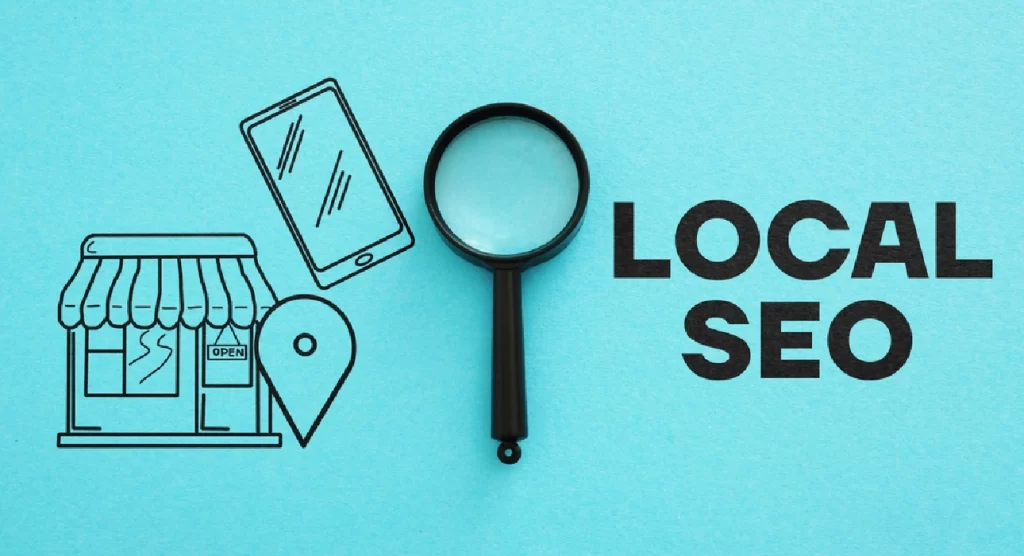When it comes to running a local business, visibility is everything. Your potential customers are searching online for products and services near them, and if your business isn’t showing up in local search results, you’re missing out on valuable traffic and sales. That’s where local SEO comes in.
Local SEO is a targeted strategy that helps businesses rank higher in location-based searches. Whether you own a restaurant, a retail store, or a service-based business, optimizing for local search can put you ahead of competitors and drive real results. In this guide, you’ll learn actionable local SEO strategies that will increase your online visibility and convert searchers into customers.
Understanding Local SEO
Local SEO focuses on optimizing your business’s online presence to attract more traffic from location-based searches. Unlike traditional SEO, which targets global search rankings, local SEO ensures your business appears in search results when users search for services “near me” or in a specific city or region.
For example, if you own a bakery in Austin, Texas, local SEO helps your business show up when someone searches for “best bakery in Austin” or “fresh pastries near me.”
Claim and Optimize Your Google Business Profile
Your Google Business Profile (GBP) is a critical part of local SEO. It’s the first thing potential customers see when searching for your business on Google Search and Google Maps.
Steps to Optimize Your GBP:
- Claim Your Listing – Visit Google Business Profile and claim or create your profile.
- Provide Accurate Information – Ensure your business name, address, phone number (NAP), website, and business hours are correct.
- Select Relevant Categories – Choose the right category and subcategories that best describe your business.
- Upload High-Quality Photos – Showcase your storefront, products, services, and happy customers.
- Encourage Customer Reviews – Positive reviews build trust and improve rankings.
- Use Posts and Updates – Share offers, events, or new products to engage potential customers.
Optimize Your Website for Local Searches
Your website needs to be structured to rank well in local searches. Here’s how to make it local SEO-friendly:
-
Use Local Keywords
Incorporate keywords that include your city, neighborhood, or region throughout your website. For example:
- Title tags and meta descriptions: “Best Coffee Shop in Seattle – Freshly Brewed Daily”
- Header tags: “Why Our Chicago Auto Repair Shop Stands Out”
- Content: Blog posts featuring local news, events, or customer success stories.
-
Ensure NAP Consistency
Your business name, address, and phone number should be the same across all online directories and listings.
-
Add Location Pages
If you have multiple locations, create separate pages for each one with unique content.
-
Embed Google Maps
Adding an embedded Google Map on your contact page makes it easier for customers to find your business.
Build Local Citations and Listings
A citation is any mention of your business online. The more consistent citations you have, the better your local SEO performance.
Where to List Your Business:
- Google Business Profile
- Yelp
- Bing Places
- Apple Maps
- Facebook Business
- Local Chamber of Commerce websites
- Industry-specific directories (e.g., TripAdvisor for travel businesses)
Ensure that your business information remains accurate and consistent across all listings.
Earn and Manage Online Reviews
Customer reviews play a huge role in local search rankings and conversions. Businesses with more positive reviews tend to rank higher and attract more customers.
How to Get More Reviews:
- Ask for Reviews – Politely request feedback from satisfied customers.
- Make It Easy – Provide direct links to your review pages via email, SMS, or website.
- Respond to Reviews – Show appreciation for positive feedback and professionally address negative comments.
- Avoid Fake Reviews – Google penalizes businesses that manipulate reviews.
Local Link Building Strategies
Backlinks from reputable local websites signal to Google that your business is trustworthy and authoritative.
Ways to Build Local Links:
- Partner with local bloggers or influencers.
- Sponsor local events, charities, or sports teams.
- Get featured in local news publications.
- Join business associations and networking groups.
Use Schema Markup for Local SEO
Schema markup helps search engines understand your business details better. Adding structured data to your website enhances your chances of appearing in rich search results.
For example, adding Local Business schema to your website can help search engines display your NAP, opening hours, and customer ratings directly in search results.
Mobile Optimization is a Must
Most local searches happen on mobile devices, so having a mobile-friendly website is crucial.
Mobile SEO Best Practices:
- Responsive design – Ensure your site adapts to different screen sizes.
- Fast loading speed – Optimize images, use caching, and minimize code.
- Clickable phone numbers and directions – Make it easy for users to contact or find you.
Leverage Social Media for Local SEO
Social media platforms help increase your local online presence. Engage with your community through platforms like Facebook, Instagram, and Twitter.
Social Media Tips:
- Share local events, news, and promotions.
- Encourage customers to tag your business.
- Use location-based hashtags.
- Engage with customer comments and messages promptly.
Invest in Local SEO Packages
If you want professional help, investing in local SEO packages can save time and deliver expert-driven results. These packages often include citation management, website optimization, review generation, and local link-building services tailored to boost your rankings.
Monitor and Adjust Your Local SEO Strategy
SEO is an ongoing process, and you need to track your efforts to see what’s working.
Key Metrics to Track:
- Google Business Profile Insights – Check views, clicks, and customer actions.
- Website Traffic – Use Google Analytics to analyze organic search visits.
- Keyword Rankings – Monitor keyword performance with tools like SEMrush or Moz.
- Conversion Rates – Track how many visitors turn into customers.
Conclusion
Local SEO is one of the most powerful digital marketing strategies for businesses looking to increase foot traffic and online sales. By optimizing your Google Business Profile, improving your website, earning local citations, and leveraging customer reviews, you can gain a competitive edge in your market.
Implement these strategies consistently, and you’ll see a noticeable improvement in your local search rankings, leading to increased traffic and higher sales. Whether you handle SEO in-house or invest in local SEO packages, the key is to stay active and adapt to changes in search algorithms.
By taking the right steps today, your business will be positioned for long-term success in local search results.




